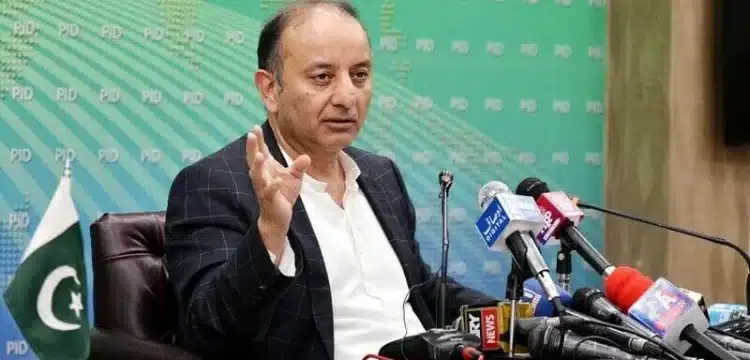[vc_row][vc_column][vc_column_text dp_text_size=”size-4″]ISLAMABAD: The government is urging Europe and China to route their gas supplies from Central Asian countries through Gwadar in order to maintain their energy security in the aftermath of the Russia-Ukraine war.
Musadik Malik, Minister of State for Petroleum, told media on Wednesday that Central Asian states – Kazakhstan, Kyrgyzstan, Tajikistan, Turkmenistan, and Uzbekistan — were the world’s energy centres. However, because these countries are landlocked, their resources are trapped and cannot be sold to the rest of the world, he claims.
According to the minister, the government has been working with Central Asia, European nations, Turkey, China, and even the United States to promote Pakistan as a natural trading hub for natural gas and liquefied natural gas (LNG), to the economic benefit of those countries as well as to the benefit of Pakistan as a smaller partner. “We have talked about this with our allies and friendly countries,” he added.
He added that Islamabad had recently addressed similar options with the leaders of Azerbaijan and Turkmenistan, the latter of which has been pursuing a multibillion-dollar gas pipeline with minimal practical progress due to difficulties in obtaining international financing and the Afghan crisis. He stated that Pakistan had also discussed this with the European Commission’s energy task force.
Also Read: The plan to hand up Punjab farmland to the army has been cancelled.
Turkmenistan couldn’t export its gas to the rest of the world because it didn’t have a port, but it could reach Pakistan via a pipeline, according to Mr Malik.
He stated that Europeans may put up their own LNG processing stations in Pakistan, particularly at the Gwadar port, from which they could transport gas back to Europe. He suggested that this could be an alternative choice for them. Furthermore, China might build LNG facilities to meet its needs, he noted.
He stated that Azerbaijan’s gas and other Caspian Sea resources could be supplied through Georgia to Turkiye, where a pipeline network already exists to carry gas anywhere in the world.
“As a result, this could become a natural arch of friendly countries, including Azerbaijan, Pakistan, and Turkey, and there could be parallel movement of natural gas through pipelines on the one hand and LNG through ships on the other,” he said.
This agreement might usher in a new era of energy security for Europe and others, and Pakistan could also become an energy transportation centre, according to Mr Malik, who added, “We can become a small shareholder in pipelines and terminals with land, port and pipeline routes.”
“We want to be Central Asia’s trading partner because it is the energy capital.” We have proposed bringing gas to Pakistan via a pipeline. Turkmenistan has vast gas reserves, nearly similar to those of Qatar, he claims. “We invite the world to come to Gwadar and establish their LNG plant, particularly China and Europe, to invest in this sector and export to other countries.”
Financing was a major challenge for the Turkmenistan-Afghanistan-Pakistan-India (TAPI) pipeline, he said, adding that if European countries discovered a way to secure their energy security through Pakistan, international multilateral agencies could also come forward with a debt portion of the $10 billion pipeline.
Apart from the existing arrangements, the minister stated that Pakistan would need to enter into new short- and long-term LNG deals over the next two to three years as prices fall due to a predicted surplus in the global LNG market once the Ukraine crisis is resolved.
He stated that Qatar’s production would increase by nearly one-third of its current capacity. Furthermore, Henry Hub deliveries from North America had reached Europe, and the flow appeared to be extending to Asia soon, since some surrounding players had begun investments in transport trains and LNG infrastructure, he added. He also mentioned that supplies from Australia were on their way.
Meanwhile, the UAE is constructing new liquefaction trains, which are made up of multiple components that process, purify, and convert natural gas to LNG. Abu Dhabi National Oil Company has announced intentions to expand its LNG production capacity in order to meet rising global gas demand.
All of this might give Pakistan with beneficial terms and prices in two to three years, according to Mr Malik.
[/vc_column_text][/vc_column][/vc_row]











